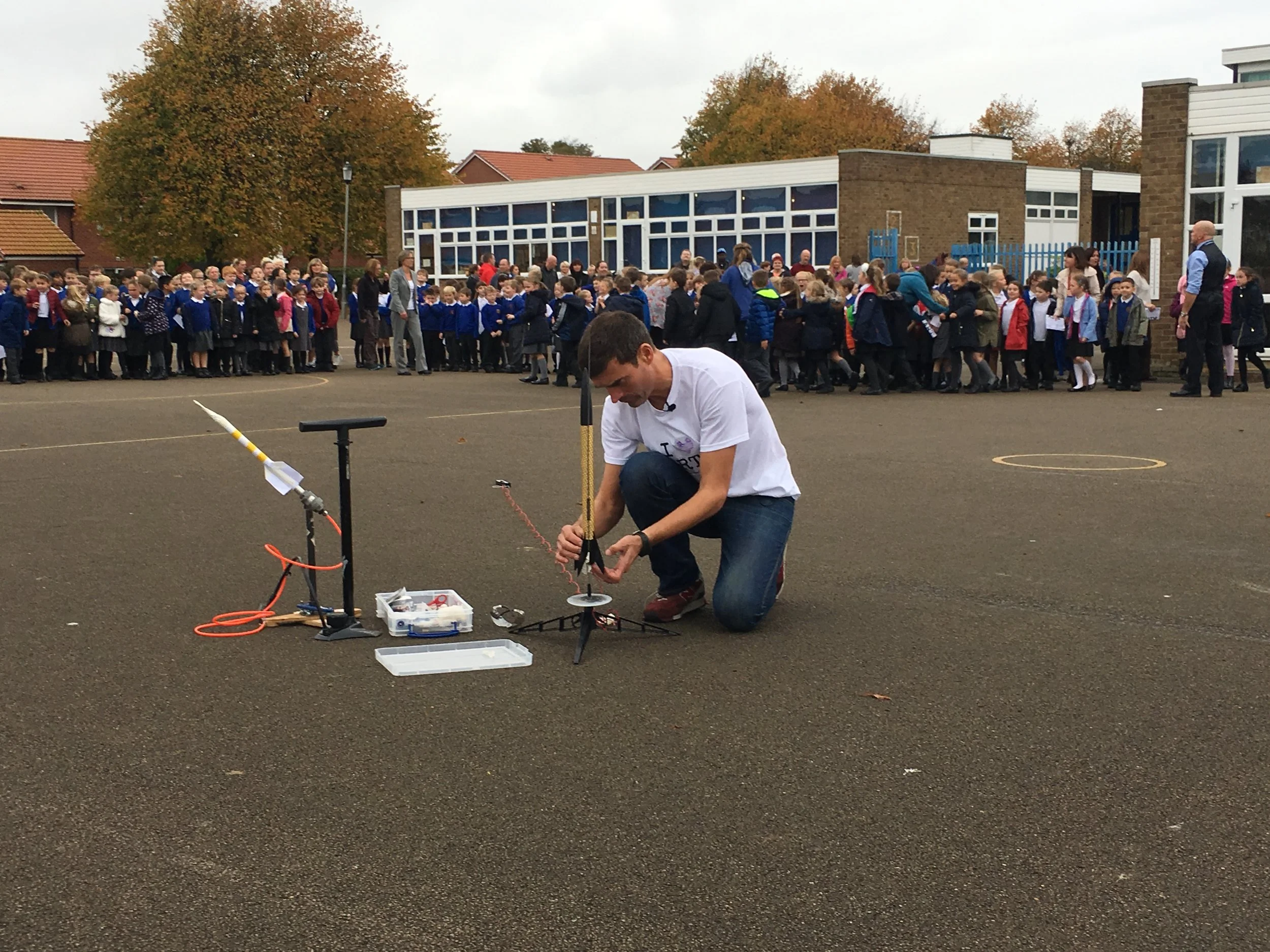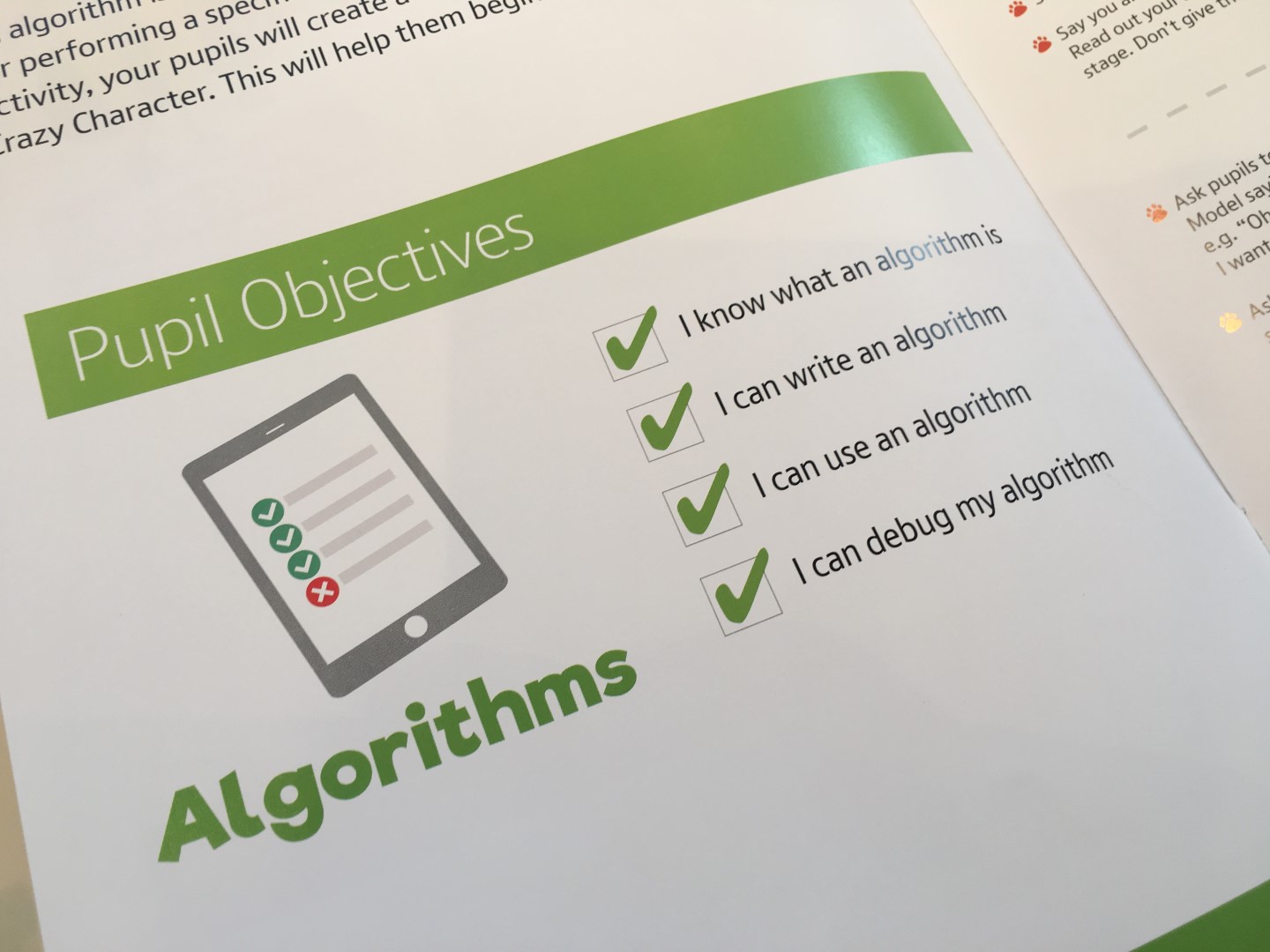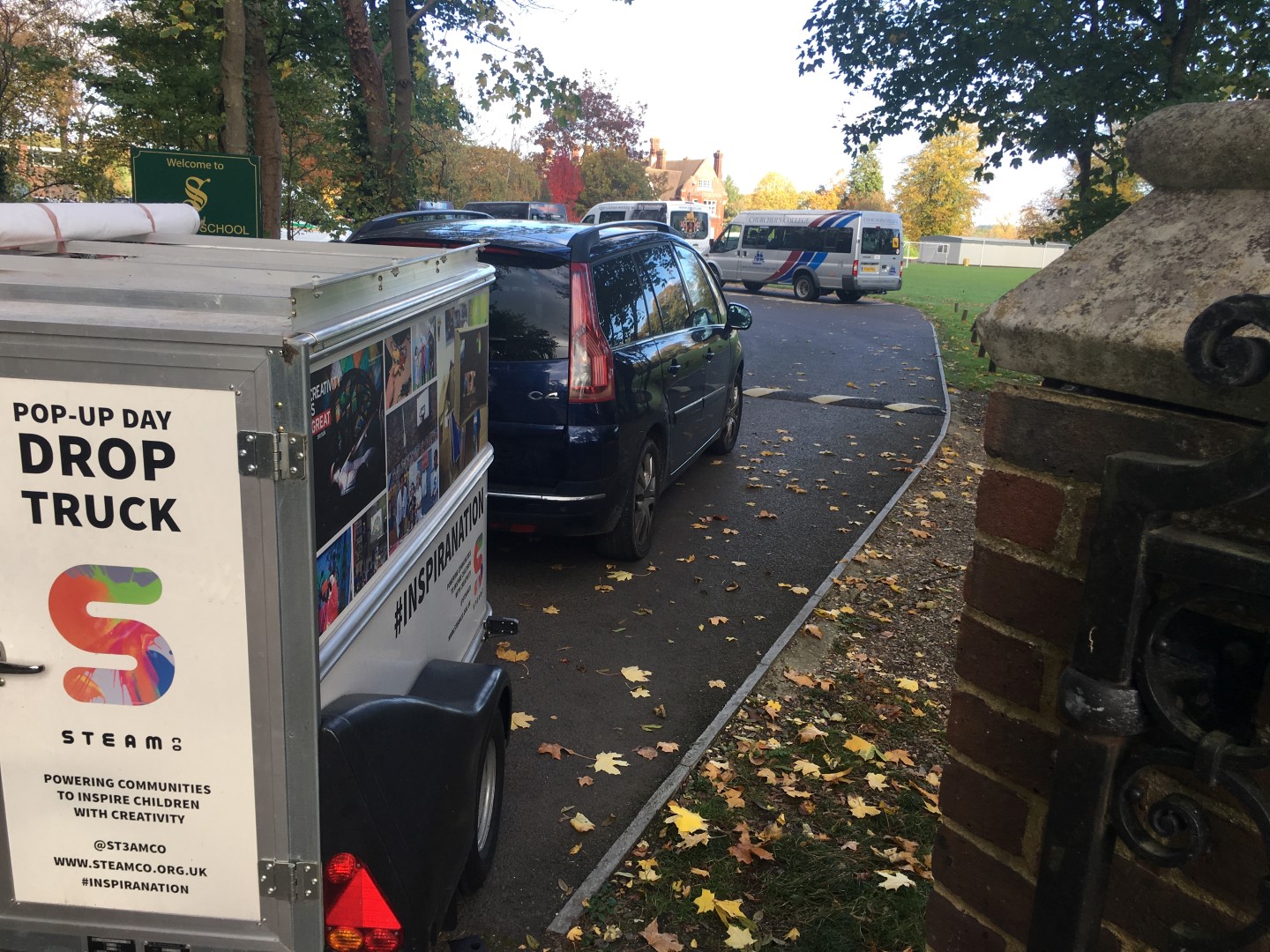A write up of a day held by BT to launch their collaborative Tech Literacy initiative, bringing together an army of their executives, media personalities from the fapidly aligning world of technology, football, advertising and education.
All summed up in a great film of the day below and a write up of the story there and what this means to our work with STEAM Co.
Good things come in big boxes
Almost 40 years to the day a big cardboard box was placed on my school desk in front of me.
I'm pretty sure of this because I seem to remember it was about the time that the Sex Pistols released the epic single Anarchy in the UK’ and the anniversary of that was last weekend.
The box wasn't full of bondage trousers but the latest technology from California, in the form of a Commodore PET computer.
As a secondary school child who had never seen a personal computer before I ripped it apart and set out to teach myself to program it with no Code Club, YouTube or Khan Academy.
Within a month or so I'd won a computer games programming competition at school with ‘Space Shoot Out’ whereby you used the left and right to cursor keys to move a gun and fire at various green shapes on a black background, be they diamonds hearts or squares which came across the screen at random positions and speeds. Unlike Steve Jobs or Elon Musk, it wasn’t my launch pad to a billion dollars and global domination.
But it was certainly one of my better programs, as the printout went around my bedroom walls twice, a paper printout being the secondary back up for the main copy of the program which was saved on a C-90 cassette which was notoriously unreliable (and yes I did have to re-key it in several times when the tape got chewed).
Deep dives
Having been there, done that when it came to computers, I dived into punk rock and dive bars and missed the BBC Micro, Atari, Sinclair Spectrum and Commodore 64 crazes which brought colour and more to the experience. I had little to do with computers for the next decade, other than at university working out how many marbles were in a box using punched card programs in the computer department and programming early Intel microprocessors to control traffic lights.
Nothing came close to Space shootout in terms of engagement though.
10 years after my first tech encounter, another box arrived on my desk, this time I had a degree behind me and was a fresh faced graduate trainee at British Telecom, the recently privatised phone company, a civil service culture in sheep’s clothing.
In the box this time was the BT Merlin M5000, the first ever IBM compatible PC BT used internally and sold to their customers.
I stayed late over the coming weeks to try and get this damned thing to do something useful and in the end finally managed to connect it to the Telecom Gold email system which had 80,000 customers, of which 79,995 or so were BT staff. (The Telecom Gold division of BT even transfer charged the other divisions of BT for using this and my boss had an £8,000 a month email bill for the storage space he used!)
All hail the king
I've dabbled variously with tech ever since, my blog regarding the BETT show last year recounts most of this journey, taking in the early days of broadband trials and the first smart cards at BT Labs in Martlesham.
One thing I do stand by was an ad to launch one of my digital agencies that we placed in Wired magazine back in 1995, when we produced the first UK content for Microsoft to help launch MSN.
It featured the line ‘Computers suck. People are cool’ and I often feature it in my talks around the UK today.
The point now and motto of the day then was that it's about people and that 'content is king', and is as valid today with the plethora of digital TV channels as it was then, especailly in the fledgling interactive learning industry that I fell into next.
So I was both excited and intrigued in equal measure when I was invited to BT’s launch of their #TechLiteracy campaign and Barefoot Computing initiative at BT Tower this week.
Been there done that
My excitement was not because BT Tower itself is any sort of novelty for me, as I went up in the 70s with my parents before the IRA bombed it, had my graduate entry passing out dinner up there with the then chairman of BT in the 80’s and also ran a STEAM Co. Day up there for BT to launch their National Inventors Day initiative, two years ago to the day.
That event was, I believe, the idea of the then Marketing Director Suzi Williams and the now Charities and Community Director Suzy Goodman.
It had a fantastic vision, where BT commissioned research, various communications initiatives and extensive PR, to celebrate, showcase and nurture Great British creativity, curiosity and invention. It generated massive buzz from BBC TV/Radio to a range of press.
We invited children in from two schools from either sides of London – Paddington and Bexley - to enjoy a STEAM Co. Day like no other, at the top of the BT Tower.
Connecting people
What was particularly special about that day and played to BT’s core USP of connecting people with creativity and technology was that we met young designer, artist and inventor Dominic Wilcox for the first time.
Since then we have built a fantastic relationship with Dominic and he has worked with and supported us across the country.
Indeed we held a STEAM Co. regional launch event to provide legacy for his Arts Council England supported Inventors! project in the city.
From that Dominic is now working on 'Little Inventors' a United Nations supported project to get children across the whole world creating in his ‘Little Inventors’ project.
We even managed to convince UKTI to sign off a poster showcasing Dominic's creativity and his 'stained glass driverless sleeper car' as part of the Creativity is GREAT to campaign to showcase and celebrate Dominic's appearance at that time on the Stephen Colbert late show in New York to a global audience of millions.
BT Vision
What really struck me was the vision which BT had applied to this initiative by clearly understanding and applying consumer insight in spades to their offer. They are tapping into children's obsession with celebrity as we do with STEAM Co. through our #Inspirators programme that gives children using STEAM Creatives as real role models.
BT’s stroke of genius is the way they have brought to life what could so easily have been another ‘me too’ coding initiative and made it utterly compelling for children in the way that few businesses, universities or trade bodies ever could by tapping into their own USP.
A unique selling point
Back in 1986 when I joined BT, it was clear the monopolistic grip would be loosened. BT’s commercial strategy is to avoid a race to the bottom for pricing of wires in the ground but to engage in a race to the top based around content and the formidable offer they have created in the last few years around BT TV and particularly BT Sport.
BT have built their launch of #TechLiteracy on linking digital skills needed to live, work and thrive in a digital world, demonstrated perfectly by the technology, tools and new ways of working in television today.
The results are in
At the launch and on the website, BT published research that they had commissioned from Ipsos Mori which revealed that 78% of teachers believe that #TechLiteracy is vital for the people’s futures.
The dream team
In 2014 an initiative called Barefoot Computing was set up by the Department of Education with the British Computer Society, BT and others when computing was put on the primary schools curriculum in England. BT took up the baton from DfE in 2015 and have worked with BCS and Computing at Schools to expand it across UK.
The #TechLiteracy campaign aims to raise the profile of Barefoot Computing to empower primary teachers, working with major players like the National Association of Headteachers, Raspberry Pi Foundation, Computers at Schools as well as both the Department for Education and the Department of Culture Media and Sport and both the Welsh and Scottish offices.
It was fantastic to see the Director General, Digital and Culture, DCMS show central government support by opening the #TechLiteracy day before a short speech by BT CEO Gavin Patterson.
In another master stroke by BT, the master of ceremonies for the afternoon event was Jake Humphrey who fronts BT Sport’s football coverage.
It was great to see such a celebrity clearly thoroughly engaged, interested and knowledgeable about the subject and at ease as much with FTSE 100 execs as paralympic celebrities and school children, not just reading off autocue and only being there because his CEO told him to.
Rocket Kids
I suspect a large part of Jake's interest was that he isn’t a career ambitious millennial doing the right thing by working with children, but that he has 'skin in the game' so to speak as a parent. We all know, not only how much life changes when we have kids, but more to the point how much more interest we have in how they are educated, whether in state or independent schools.
How delightful then at the end of the evening to be able to come across Jake and his wife as I was leaving the tower at the end of the evening to give him a paper rocket I had made and taken along with me to showcase the STEAM Co. 'Rocket Kids' show we are touring across the country.
As outlined in this recent blog it is driving engagement with children and the curriculum, particularly in challenged communities in coastal towns and inner cities of Northern England.
Get them in primary
The highlight for me of the day though was the fact that BT have echoed the sentiments of Sir Robert Winston who I saw speak at the Mayor of London’ Education Conference three years.
As everybody else was talking about the millions being put into STEM in secondary and higher education, Professor Winston banged his fist on the table and said “we've got to get them in primary”.
And ‘get them in primary’ is what BT and their Tech Literacy/Barefoot Computing initiative are settling out to do.
And selflessly they have created an unbranded website full of resources and platform to cultivate a conversation around #TechLiteracy, sharing best practice and connecting people, which BT are more than well placed to do in this country. The definition of win:win:win.
The website contains a wealth of resources for primary teachers to develop skills, beyond traditional ICT skills but realising that #TechLiteracy spans subject areas and is a requirement for EVERY teacher across the school if children are to leave primary tech literate and able to access and exploit the opportunities available to them, next in secondary school and later, in the wider world.
PEOPLE ARE COOL
The event was curated in a particularly constructive way with a number of breakout sessions where the very high profile audience were able to interact and collaborate towards first steps towards solutions in key areas across work, education, parenting, home and in life.
Back to the ‘Computers Suck, People are Cool’ advert above. Yes the most missed important thing still here is PEOPLE, and in education particularly children and teachers.
As well as engaging famous celebrities and creatives to inspire our children at the top end we need to showcase and fully support the showcase the amazing work of teachers in the EdTech space, many of whom were sadly missing from the BT event.
I’m thinking Mark Anderson in the South West and Martin Bailey, Steve Bunce and Carol Allen in the North East, though it was great to see old friend from our Liverpool launch, Alan Donohoe represent the Northwest at BT Tower.
Power to the… err… kids?
My one nagging thought on the afternoon was that we have to remember as adults that there are already children among us who know more about tech and we do or ever will and that we have to both leverage that for our and their peers’ advantage.
One fantastic initiative that I have seen in the last year or so is 'Digital Leaders' in primary (and secondary) schools where children who are particularly tech literate are celebrated and given permission to both peer tutor other children and support them as well as teachers in their schools.
'Wot tech?' Passmores Head Teacher Vic Goddard with his very own 'Rocket Kids' air rocket!
I first came across Digital Leaders when I saw an amazing primary teacher Dawn Hallybone from Oakdale Junior School in Essex stand back as a group of her children presented at an education conference alongside global creativity and EdTech gurus like Sir Ken Robinson and Prof Sugata Mitra.
At Passmores Secondary, Channel 4’s super head Vic Goddard encourages his Digital Leaders to run a Silver Surfers club for elderly members of their school community. Digital Leaders at Mount’s Bay Academy in Penzance teach and support Digital Leaders in their feeder primary schools.
I recently gave our ‘Rocket Kids’ talk and fired a rocket off at an amazing Digital Leaders event arranged by another inspiring EdTech school leader Rachel Jones down in Hampshire.
She pulled together a remarkable range of organisations to inspire these Digital Leaders, with opportunities for them to engage with cutting edge tech from Google Expeditions through to #STEAMcrew, part of Ben Ainsley’s 1851 Trust sponsored by Land Rover and BT to provide STEM activities for Secondary children.
Speak my language
If I had one criticism or question it’s the way we (adults and companies) use our own language and perpetuate barrier phrases like ‘tech’ and ‘geeks’, even calling it #TechLiteracy and how we continued to wonder at the fact that one-year-old children can use iPads better than we could/can.
So what to call it? If you asked a Disco Dad he'd say something naff like 'Cool Skills'. Why not ask an 11 year old?
There is a famous phrase that ‘technology is something that was invented after you were born’.
Kids probably don’t see this as tech or worthy of special treatment. Everything is technology now. This is a digital world and as BT so capably and admirably showed the other day it impacts every aspect of our life and we need to give them and schools all the support we can to bed into and across the curriculum.
Some question that the Department of Education have outsourced such an important responsibility to businesses to reinvent their own wheels.
Fortunately they often do it really well. A STEAM Co. supporter, Barclays are rolling out a nationwide network of Eagle Labs digital maker spaces in disused bank branches.
Their Digital Eagles program has trained up 15,000 members of staff and support STEAM Co. by bringing The BBC Micro:bit into primary schools on STEAM Co. Days as in the film below at Kenmont Primary. (Just last week I showed a Teaching Assistant how to code the BBC Micro:Bit on a Mini STEAM CO. Day at West Thornton Academy. She went on to teach 100 children to code it, in one day)
From skills to empowerment
"The power of art and creativity" Ashok Vaswani - Barclays CEO at STEAM Co. event
Furthermore we were delighted to feed into Barclays recent work on the Digital Index, driven and not just fronted by their CEO Ashok Vaswani.
This vision promotes not just digital skills but digital empowerment, highlighting the UK’s position in global league tables not for reading and writing but digital skills that will either secure our position in global economic league tables or make them slip behind.
If BT and other business leaders need any more reassurance of the fact that we are no longer living in industrial economy but a connected economy and that they are uniquely well placed to connect people, then they need look no further than this fantastic 60 second clip by global marketing, education and social change guru Seth Godin clip which shows why we spell STEM with an ‘A’ and how #ARTconnects.
Click image to see this compelling clip about our connection economy.
As TED-X curator and serial social entrepreneur Marcus Orlovsky said in his closing keynote at the SSAT Conference yesterday on how quickly the world is changing, "Businesses like Barclays need to connect with their communities".
As they and BT are.
Hats off to you both for taking #YOURturn





































































